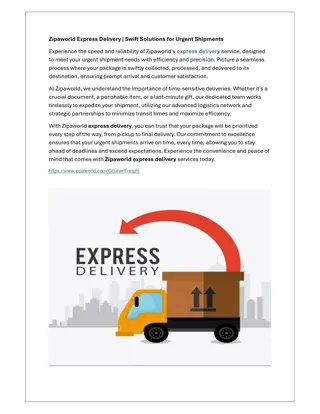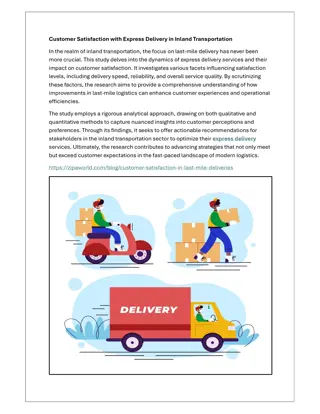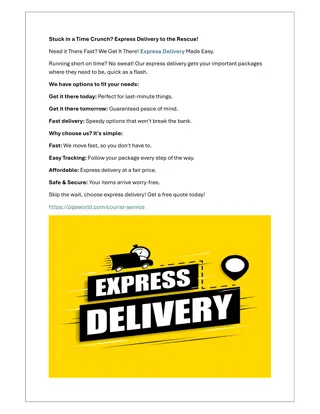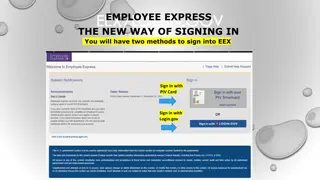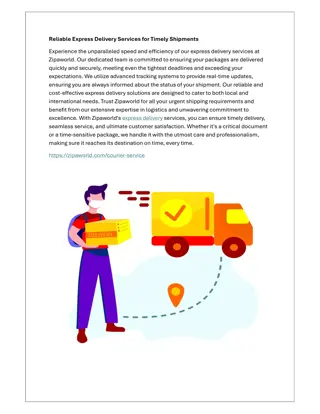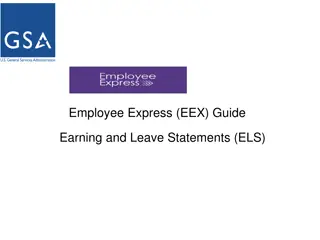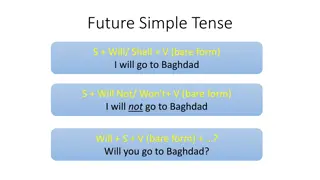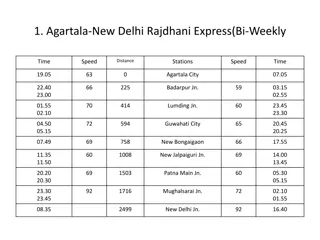Introduction to Express.js
Express.js is a server-side framework built on top of Node.js, known for being open-source, minimal, and having an extensive library. It is widely used in back-end web development and is considered a standard in the industry. Created by Tj Holowaychuk, Express.js quickly gained popularity since its initial release in November 2010 and is now utilized by major companies like IBM, Netflix, PayPal, and more. With features such as easy HTTP method definition, built-in error handling, and support for template engines, Express.js simplifies web application development. The MEAN stack incorporates Express.js for handling server-side tasks, making it a vital component for full-stack web applications.
Uploaded on Nov 12, 2024 | 0 Views
Download Presentation

Please find below an Image/Link to download the presentation.
The content on the website is provided AS IS for your information and personal use only. It may not be sold, licensed, or shared on other websites without obtaining consent from the author.If you encounter any issues during the download, it is possible that the publisher has removed the file from their server.
You are allowed to download the files provided on this website for personal or commercial use, subject to the condition that they are used lawfully. All files are the property of their respective owners.
The content on the website is provided AS IS for your information and personal use only. It may not be sold, licensed, or shared on other websites without obtaining consent from the author.
E N D
Presentation Transcript
Express.js Isaac Herbst, Tony Nguyen
About Express.js is a server-side framework built on top of Node.js Open-source and minimal with an extensive library Widely considered a standard for back-end web development
History Created Tj Holowaychuk Initial release in November 16 2010 Quickly gained popularity for its server-side development Acquired by Strongloop in June 2014, then by IBM in November 2015 In February 2016, IBM added Express to the Node.js foundation Used by IBM, Netflix, PayPal, Walmart, Fox Sports, Uber, and more Has ~27 million weekly downloads
MEAN Stack Javascript framework for developing full-stack web applications Components of the full-stack are client and server-side Consists of MongoDB, Express.js, Angular (react/vue), and Node.js Express.js is the framework used for handling server side tasks
Features Easy to define HTTP methods, (GET, POST, PUT, DELETE, etc) Error handling built in to the request response cycle Template engines like Handlebars, Pug, and Swig Provides a thin layer of fundamental web application features without obscuring Node.js features
Express application generator Tool to quickly create an application skeleton More detail explanation, here.
Basic Routing Responds with Hello World! On the homepage: Determines how an application responds to a client request to a particular endpoint, which is a URI and a specific HTTP request method. Here are some simple routes app.get('/', (req, res) => { res.send('Hello World!') }) Responds to POST requests on root route (/), the application s home page: app.post('/', (req, res) => { res.send('Got a POST request') })
Basic Routing Cont. Responds to a PUT request to the /user route Responds to a DELETE request to the /user route app.put('/user', (req, res) => { app.delete('/user', (req, res) => { res.send('Got a PUT request at /user') res.send('Got a DELETE request at /user') }) })
Hello World! This code starts a server and listens on port 3000 for connections. The app responds with Hello World! for request to the root URL (/) or route.For every path, it will respond with a 404 Not Found. Output: Hello World!
Code demo with Handlebars
Frameworks Many of the popular frameworks are based on Express are some Feather: Builds prototypes in minutes and production ready real-time apps in days ItemsAPI: Searches the backend for web and mobile applications built on Express and Elasticsearch. KeystoneJS: Website and API Application Framework / CMS with an auto-generated React.js Admin UI Poet: Lightweight Markdown Blog Engine with instant pagination, tag and category views And much more!
Sources en.wikipedia.org/wiki/Express.js npmjs.com/package/express github.com/expressjs/express mongodb.com/mean-stack geeksforgeeks.org/steps-to-create-an-express-js-application/ expressjs.com



